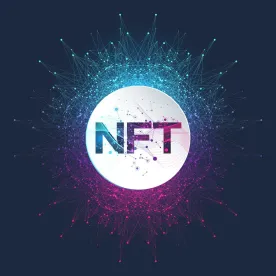On February 22, 2023, the United States District Court for the Southern District of New York, in a 64-page opinion, denied a motion to dismiss filed by Dapper Labs, Inc., the developer behind the NBA Top Shot NFT platform, which is hosted on its private blockchain, Flow. The decision allows a consumer class action to proceed against Dapper, at least for now, that will test whether the NFTs sold on the platform — called “Moments” — are more akin to digital trading cards or are unregistered securities offered and sold in violation of Sections 5 and 12(a)(1) of the Securities Act of 1933.
Critically, whether NFTs are securities is a fact-specific inquiry, so companies should exercise caution when developing new platforms and collections. Additionally, the Dapper Labs opinion, while rendered by an influential court and judge, is only a preliminary ruling and thus may have limited precedential value.
SEC v. W.J. Howey, 328 U.S. 293 (1946).
In assessing whether a financial instrument qualifies as a security or “investment contract” under the Securities Act, courts look to the landmark 1946 Supreme Court decision – SEC v. Howey. Under the “Howey Test,” if a transaction involves (1) an investment of money, (2) in a common enterprise, (3) with the expectation of profit from the essential entrepreneurial or managerial efforts of others, it is likely considered a security. The Howey test aims to prioritize function over form, embodying a flexible approach adaptable to various schemes under which alleged investment contracts may arise; overall, courts consider the “totality of circumstances.”
In the case of Dapper Labs, the parties concede the “investment of money” prong. Thus, the briefings and the court’s decision focused largely on whether purchasers of Moments are investors in a common enterprise with profits derived from the managerial efforts of others.
The Court’s Analysis in Dapper Labs
Dapper Labs argued that the class failed to satisfy the common enterprise prong, but the court disagreed, concluding that the plaintiffs adequately alleged a common enterprise under the theory of “horizontal commonality” (but not “strict vertical commonality”).
Crucial to this finding is the fact that, at least in the court’s view, the plaintiffs’ fortunes were tied to Dapper Labs as a result of Dapper Labs’ exercise of significant control over the primary and secondary markets for Moments and the Flow blockchain — a private rather than a public blockchain — where Moments are minted.
In particular, the court noted that Dapper Labs owns and operates the NBA Top Shot NFT marketplace, which is the only platform where consumers can acquire Moments, whether on the primary or secondary markets. Unlike some other NFT collections, Moments cannot be transferred or sold on third-party NFT platforms like OpenSea.
The court also found it significant that the value of Moments is dependent on Dapper Labs’ continued operation of the Flow blockchain. Without Flow, the court asserted, purchasers would have no ability to sell or transfer their Moments, thereby depriving Moments of any value. Indeed, the court concluded that if, hypothetically, Dapper Labs went out of business and shut down the Flow blockchain, the value of all Moments would plummet to zero, suggesting that Dapper Labs’ managerial efforts are essential to the promise of profits made to investors.
Further, the court found that Dapper Labs had created a reasonable expectation of profit by, inter alia, posting tweets under the Top Shot’s Twitter account promoting recent sales of Moments on the Top Shot marketplace. Notably, while the cited tweets did not include the literal word “profit,” they did include the “rocket ship,” “stock chart,” and “money bags” emojis, all of which were construed by the court as promises of profits, or put differently, promises for financial returns on investments. Relying on the sale structure and the implications from the tweets, the court found that the promise of profits consideration was established.
Takeaways
The level of control exercised by Dapper Labs over the Top Shot Moments appeared to play a significant role in the court’s decision. As noted above, this includes the private blockchain on which Moments are minted, the Top Shot online NFT marketplace, and the secondary market for Moments. It is important to note, however, that the court’s decision was in response to a Motion to Dismiss, which means that the case will continue, and Dapper Labs will have an opportunity to present a more fulsome defense.






 />i
/>i
